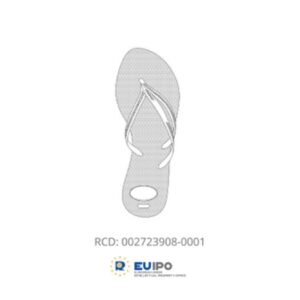
The UK does not have an unfair competition legislation, in contrast to many other nations. Owners of brands who want to stop rivals from selling “copycat” goods or deceptive advertising must rely on a variety of IP protections. Among these rights is the common law prohibition against passing off.
The foundation of a passing off claim is the idea that no one has the authority to misrepresent their products or services as belonging to another person. A typical situation is when the defendant impersonates the claimant and uses same packaging, attire, or branding to mislead about where the products or services originated. The essential components required to prove passing off are outlined here, along with a summary of possible defences, solutions, and helpful considerations.
Allegations of passing off are frequently made in connection with trademark or design rights infringement.
Protecting unregistered trade mark rights in the UK can be done through the common law action of passing off. In reality, clients frequently file a passing off claim in addition to one alleging violation of a trade mark or design right.
Three requirements are outlined in the case Reckitt & Colman Products v. Borden and must be met by the claimant in order to demonstrate passing off:
• The claimant’s products or services have gained favour or a reputation among consumers and are distinguished by some attribute
• the defendant has made an intentional or inadvertent misrepresentation that causes or is likely to cause consumers to believe that the goods or services the defendant is offering are those of the claimant, and
• As a result of the deception, harm has occurred or is anticipated to occur.
The “classical trinity” is the name given to these three components. The decision in United Biscuits v. Asda, which held that Asda’s sale of a chocolate PUFFIN biscuit amounted to passing off in relation to United Biscuits’ comparable PENGUIN product, is an excellent illustration of this test in action. Due to the differences between the trade marks PUFFIN and PENGUIN, the action for trademark infringement was dismissed. Yet, it was decided that the packaging was enough similar overall for the passing-off case to be successful.
In the Hasbro case, it was determined that even in the lack of additional characteristics that consumers connected with the PLAY-DOH brand, including a recognisable cloud emblem, the use of the mark PLAY DOUGH on moldable clay amounted to passing off in respect to the mark PLAY-DOH.
So, if the claimant lacks a trade mark registration but can show goodwill or a reputation for its goods or services in the UK, passing off is a useful cause of action. The drawback is that a register entry cannot be used to demonstrate the existence of a claimant’s rights; instead, the claimant must first gather proof of goodwill or repute, which increases the burden of proof for the claimant.
What we need to establish
Goodwill
The “traditional trinity” mentioned above alludes to goodwill or repute, but case law has shown that these elements are insufficient on their own to support a claim of passing off . Given the circumstances, proof of goodwill must be presented.
One type of legal property is goodwill. Rather than in the incorrectly used mark, name, or get-up, the property is in the goodwill that is likely to be harmed by the deception. Although hard to pin down, goodwill has been defined as “the benefit and advantage of a business’s good name, reputation, and connection.” The power that attracts people is what brings in custom.
The probability of damage and goodwill are intimately related. It is unlikely that the claimant will be able to demonstrate a possibility of material damage occurring if they are having difficulty establishing sufficient goodwill.
Reputation and goodwill are not always the same thing. Even though a brand may be well-known in the UK, there may not be any goodwill or risk of harm if there is no trade in the country (see Anheuser-Busch v. Budejovicky Budvar Narodni Podnik and Starbucks (HK) v. British Broadcasting Group). Yet, in the case of Hotel Cipriani v. Cipriani (Grosvenor Street), the claimant was able to demonstrate goodwill despite not engaging in any business activities in the UK since a sizable portion of British visitors made reservations and stays at the Hotel Cipriani in Italy from the UK.
Even if it can be proven, not all industries will definitely benefit from goodwill. The department store Harrods was unable to demonstrate that the establishment of a school named the “Harrodian School” would harm their goodwill in the Harrods v. Harrodian School case. “To be known by everyone is not to be known for everything,” the judge remarked.
Despite its tiny size, a localised, small business could be able to build goodwill. While there was sufficient goodwill in Chelsea Man Menswear Ltd v Chelsea Girl Ltd despite the claimant being a tiny apparel firm, there was not enough goodwill in Hart v Relentless Recordings for there to be a risk of loss.
It is necessary to prove goodwill at the moment the purported handing off started. It’s not necessary for this to depend on the claimant having begun trade. In Glaxo v. Glaxowellcome, the defendants were prevented from using the name “Glaxowellcome” the day following the merger by the announcement of an impending merger between Glaxo plc and Wellcome plc. Yet in Starbucks v. Sky, it wasn’t enough for a foreign business to say that it intended to trade in the UK in the future and build goodwill in the process.
Misrepresentation
The purpose of passing off is not to avoid simple confusion. There is no legal recourse in the event that customers are misled by the names of two businesses. The defendant must have made a true false statement (expressed or implied), and that false statement must have caused or be expected to cause deceit.
In the L’Oréal “smell-a-likes” decision, the High Court made it quite evident that passing off was not, and should not, be as broad as unfair competition. It would be impossible to pass off without lying and misrepresenting oneself. The Court of Appeal dismissed the passing off claim by the time this case got there.
The assertion that the defendant is providing the claimant’s products or services is the most frequent form of misrepresentation.
Damage
A key element of proving passing off is damage, or a real possibility of damage, to the claimant’s business, which practitioners should be careful not to ignore. It is not reasonable to infer that misrepresentation and kindness will inevitably lead to harm. The claimant must demonstrate, by a preponderance of the evidence, that it has incurred or is likely to incur significant loss.
Among the pertinent heads of damage are:
• Diversion of trade, or loss of business or profit—the defendant utilises the claimant’s goodwill to draw customers to its own venture rather than the claimant’s
• Goodwill harm, such as when the claimant’s name is connected to the defendant’s subpar products or services
The challenge of measuring damage is one of the main problems in establishing it. In certain instances, damage will be obvious even though it is hard to measure. For instance, in the case of Global Projects Management Ltd v. Citigroup Inc., it was decided that damage was evident even if it was impossible to measure because of the high chance of emails being accidentally sent to the claimant’s website instead of the “citigroup.co.uk” one.
Remedies
The remedies are the standard ones found in IP proceedings, such as:
• a probe to determine how much the claimant has lost
• losses or a breakdown of the defendant’s earnings
• a directive to destroy or deliver the pertinent goods
• Restrictive measures
In the case of Irvine v. Talksport Ltd., the defendant altered an image of race car driver Eddie Irvine digitally so that it appeared as though Irvine was recommending the defendant’s offerings. It was decided that the claimant should be entitled to damages equal to the usual amount that would be due after a legitimate endorsement.
Defences
Defendants may rely on a variety of particular defences in addition to arguing that the three traditional components of passing off are not present in the case, such as:
• the defendant’s own name being used. This defence only applies to corporate names; it does not apply if the defendant altered or selected its name with the intent to deceive customers.
• The defendant’s sincere concurrent use of the “misleading” element
• Just defences like acquiescence or delay
Good advice
It is advised that you:
• Steer clear of unprotectable generic packaging and try to make your package stand out as much as you can.
• Take into account implementing registered trade mark and design right protection in addition to unregistered rights, and investigate whether unregistered design rights could also help to safeguard packaging.
• As an additional measure of security, think about registering design rights for creative packaging.
• Use trademarks and packaging consistently to foster goodwill and reputation
• Use the TM and ® marks to dissuade any third-party infringers (keep in mind that utilising the ® symbol to falsely represent a trade mark as registered is illegal).
• Keep an eye on rivals’ branding and marketing initiatives to quickly spot any potential instances of passing off.
michael@trademarkroom.com












